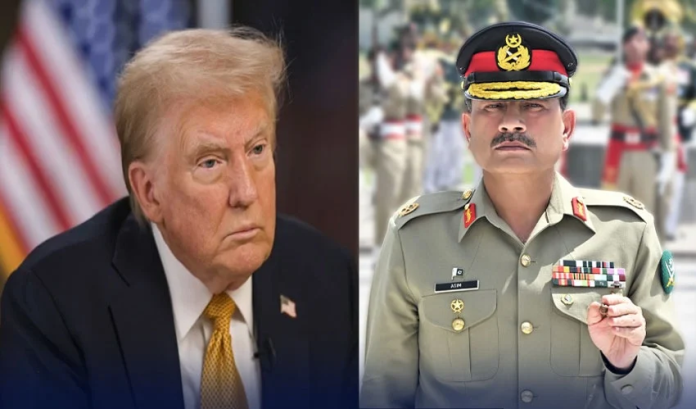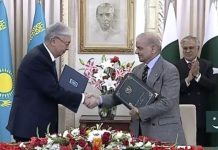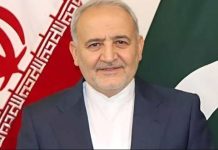Key issues discussed: Iran-Israel war, Kashmir, Afghanistan, and U.S.–Pakistan relations
Shamim Shahid
Former U.S. President Donald Trump and Pakistan’s Army Chief General Asim Munir held a special and important meeting during a time when tensions are rising in the Asian region. The meeting was held on Trump’s invitation and was not open to the media. However, both sides have released official statements afterward, which states that the main topics were discussed
The meeting focused on the ongoing conflict between Iran and Israel, Pakistan–India relations, especially the Kashmir issue, the situation in Afghanistan and future U.S.–Pakistan cooperation.
Pakistan has recently improved its strategic position in the region. It has shown strong ties with China and is the only South Asian country openly supporting Iran in its conflict with Israel. Meanwhile, Pakistan remains an important player in Afghanistan.
Although Pakistan has an elected civilian government, important decisions—especially related to foreign affairs and security—are often handled by the military. That’s why General Asim Munir was invited to meet Trump instead of the Prime Minister, General Munir’s influence has grown recently. After tensions with India, he was given the title of Field Marshal. His meeting with Trump is seen as a sign of his importance in both Pakistani and international politics.
According to the Pakistan Army’s media wing (ISPR): General Munir thanked President Trump for helping to ease recent tensions between Pakistan and India. Trump praised Pakistan’s role in fighting terrorism. Both agreed to work together in the future, especially in: Trade, Technology Minerals and energy Artificial intelligence Crypto currency and regional peace efforts as well.
President Trump also appreciated General Munir’s leadership during difficult times. Munir invited Trump to visit Pakistan, and Trump reportedly accepted the offer in principle.
Former U.S. diplomat Zalmay Khalilzad criticized the meeting. According to Khalilzad, General Munir may be trying to get U.S. support for his interests in Afghanistan, which he believes could be risky for America.
Though no official list of U.S. demands was made public, reports suggest a meeting was held in Saudi Arabia earlier, where American officials spoke with top Pakistani leaders. During that meeting, the U.S. reportedly made four key requests: Pakistan should help the U.S. in counterterrorism operations when needed. Pakistan should slowly reduce its relations with China. Pakistan should recognize Israel after Saudi Arabia does. If the U.S. attacks Iran, Pakistan should support the U.S. instead of staying neutral.
These demands are similar to earlier U.S.–Pakistan arrangements during the Cold War and the War on Terror.
This meeting could mark the beginning of a new phase in U.S.–Pakistan relations. In the past, Pakistan helped the U.S. during the Soviet-Afghan War and after 9/11. Now, with tensions involving Iran, India, and Afghanistan—and China expanding its role—the U.S. may again be looking to Pakistan as a key partner in the region.
Time will tell whether this leads to a long-term partnership or just another temporary agreement based on short-term goals.

















